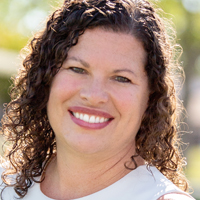
What a difference a year makes. As the number of fully vaccinated Americans continues to climb and state and local governments ease restrictions on public gatherings, I’ve seen a tremendous increase in optimism among our clients now that they are able to travel and visit in person with children and grandchildren rather than over FaceTime or Zoom. In addition to long-awaited family reunions, the following are five behaviors I’ve noticed in our retirement age clients.
An Overall More Optimistic Outlook
I’ve found our clients to be more optimistic because they are feeling flush with cash these days for a number of reasons. Between stimulus checks and an inability to spend on dining out, travel and entertainment, millions of Americans have higher balances in their accounts than they would under “normal” circumstances. In fact, according to the Commerce Department, Americans have saved $1.6 trillion since the pandemic started.
At the same time, the stock market has been on a tear with all the major indexes at or near their all-time highs. Anecdotally, my clients have also seen the value of their homes increase, in many cases by 10% or more since this time last year.
Those who have continued working through the pandemic but doing so from home have even more in savings since they’ve eliminated commuting expenses, meals away from home, dry cleaning and all the other items that come with going to work and can quickly add up to “real money.”
Increased Concern About Their Family’s Future
I’ve also noticed among our clients a greater emotional confidence as things slowly return to “normal.” On a personal level, people are feeling safer and able to start doing the things that bring their lives meaning with less fear. This segues into greater optimism about not only their personal financial situation, but also the economy in general. I’ve found that first and foremost among many retirees’ minds is concern for the financial stability of their kids and grandkids.
Coming out of the pandemic, I think that common concern about the financial well-being of subsequent generations, combined with a sense of financial well-being, is causing many people to reevaluate their attitude and intention around generosity.
“Rather than waiting to make bequests in their will, some wealthy families are choosing to begin gifting their assets to the next generation now.”
Rather than waiting to make bequests in their will, some wealthy families are choosing to begin gifting their assets to the next generation now. For those who have been paying attention to what’s been going on in Washington D.C., the possibility of dramatic changes to the tax code, particularly to the estate tax provisions, give a little extra impetus to begin gifting now.
I’ve certainly seen that among our own clients, a group mostly consisting of people near retirement or recently retired. We have one particular client who has been in a position to start family gifting for some time but could never bring himself to pull the trigger. Finally, this year, a change in circumstances convinced him it was time to start.
One of his sons lost his job due to the pandemic and while the other was still doing fine, he aspired to move into a bigger home to accommodate his growing family. The client ultimately decided to go ahead and begin systematic gifting $15,000/year under the belief that there were some still undefined, but more onerous tax implications coming in the future.
A New Spirit of Generosity
And although intergenerational gifting gives truth to the adage that charity begins at home, I’ve seen among our own clients that it also extends to the world beyond. People seem to be increasingly looking to put their money to work in ways that align with their personal values, something we also strive for at Piton Wealth and at Thrivent Advisor Network, to which we belong.
I think it’s a byproduct of people wanting to do the right thing while sitting in their homes and watching negative news unfold on their televisions or their phones. They know that charities focused on health and hunger have been especially stressed with more demand and fewer available resources. The response of a lot of our clients has been to give more to the charities they are passionate about that they know are helping to work toward positive good.
Depending on the individual’s circumstances, how they manifest their philanthropic impulses will vary.
For many retirees, charitable qualified distributions can provide a lot of benefit to causes they care about, as well as reduce their tax bill. An individual who is over the age of 70½ can give up to $100,000 from their traditional IRA to a charitable organization with no tax implications. It also counts toward their required minimum distribution. That has been a really popular strategy among our clients this year.
Gifting highly-appreciated stock is another way of maximizing the benefits of gifting that is appealing from a tax perspective. We often suggest to clients that they maximize the tax benefits of their charitable donations by using Donor Advised Funds (DAF) for their highly- appreciated stock as well as cash contributions.
One of the beauties of using a DAF is that the client gets the tax deduction in the year the donation is made but it can be distributed to a charity at a later date, growing in value in the interim. This allows the client to separate the tax deduction from the actual grant. That’s become very, very popular of late.
Reevaluating Retirement Timing
I’ve also noticed a change of attitude among our close-to-retirement clients who have been working throughout the pandemic but doing so from home.
A number of them who were on the verge of retiring last year are now reconsidering. Not having to get dressed up in the morning and then battling through traffic and other commuting headaches has greatly reduced the stress level of many clients who are suddenly finding their jobs more enjoyable.
It’s interesting that right now they are much more able to balance the quality of life and the engagement that work provides when they are working from home. If they can continue to work this way, some feel that might as well keep at it for another year or two.
While it’s understandable for those who need to add a bit to their retirement savings, for other clients whose financial situation is very comfortable, I might advise them to just bite the bullet and make the decision to retire this year so they can get busy doing those things they always planned on tackling when they had more time.
Getting Their Affairs in Order With an Eye on Washington
And speaking of getting around to things, I had a pleasant surprise this year. A number of clients that I had been encouraging for years to get their estate planning documents in order — their will, power of attorney, trust documents — actually finally did it.
I think the fact that so many law practices were operating under Covid protocols and conducting business through video calls and email actually made it easier for people to complete the process.
I have also noticed among our clients a desire to be better educated regarding changes to the tax laws. There’s been a lot of discussion, but no agreement on what the changes will be in terms of rates and estate tax provisions. So, while the only proactive step clients can take right now is around family gifting and charitable donations, there’s a real desire to understand what’s being discussed. They want to understand the current law so they can be prepared to make potential strategy changes once any new laws go into effect.
The last year and a half has changed so many things in our world. Whether they wanted to or not, people were forced to alter how they approached many activities from going to the grocery store to voting. And it’s also awakened many to the reality that life is full of uncertainties and spurring them to take some of the steps mentioned above.
Michelle Clary, CFP®, ChFC®, CLU®, RICP® is CEO/Senior Wealth Advisor with Piton Wealth in Kennewick, Washington. Piton Wealth is a part of Thrivent Advisor Network, LLC, a Registered Investment Adviser (RIA), located in Minnesota. This is for informational purposes only and is not to be construed as or considered to be legal or tax advice.







